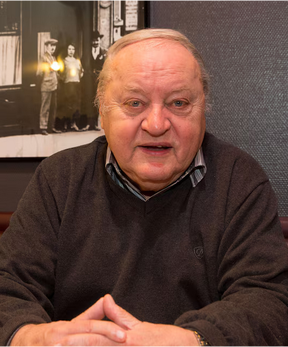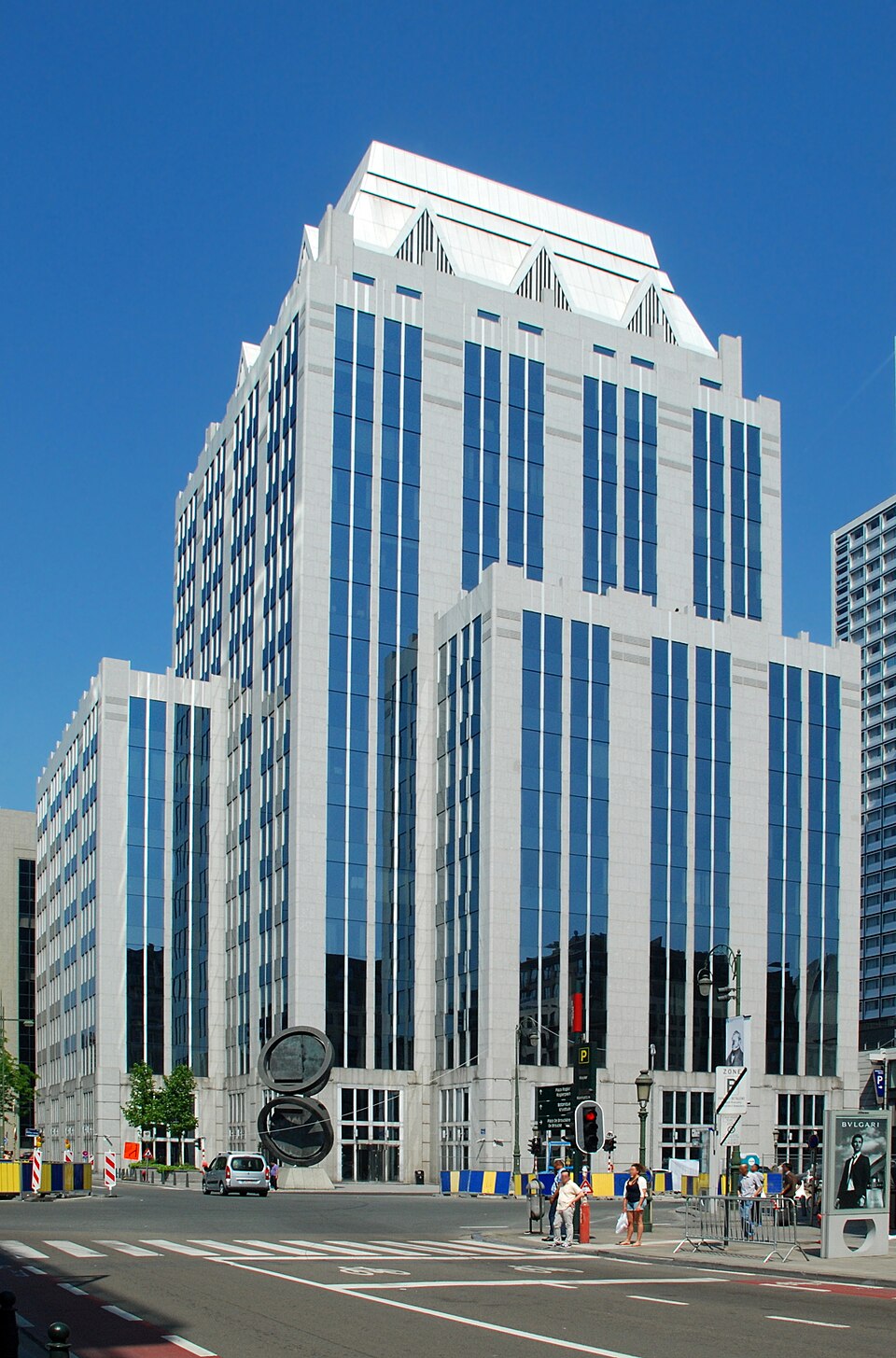A WARNING TO BOTH CAMERON AND DE WEVER…
On March 17, 2011, the president of the N-VA (new-“Flemish” alliance, a radical “Flemish” party promoting the destruction of the Belgian State) was invited at 10 Downing Street, the headquarters of Her Majesty’s Government and the office of David Cameron, Prime Minister of the UK. Their meeting took half an hour whereafter the “special guests from Belgium” – including Jan Jambon en Liesbeth Homans (both N-VA) were invited at a reception. De Wever – now wearing a tie (when invited at the Belgian Court he refused to) – was in an excellent mood afterwards. Nevertheless, Cameron and De Wever have – at first sight – opposite goals.
Mr. Cameron’s conservative and monarchist party is opposed to more autonomy for the Scottish, the Welsh and the people from Northern Ireland, who already greatly benefited from the devolution process. It goes without saying that the Flemish nationalists support the anti-British autonomists. In the European Parliament the N-VA and the SNP (Scottish National Party, the Scottish independentist party) are part of the same fraction.
It is as if the N-VA would pay a visit to the Spanish conservatist Parti Popular, a party combating the Bask independentists of ETA and their political wing Batasuna, the latter being expressly supported by the N-VA. Of course they won’t do that. Which is then the real game being played behind the curtains? De Wever highly acclaimed Cameron. His conservatism, we learned, pleased him and he wished that he could form a government in 8 days, just like in the UK. This of course does not cover the full story. True, the conservatives enjoy an absolute majority in England. The Scottish party wing however, has only 17/129 seats in the regional parliament, while the party has only 13/60 seats in the regional assembly of Wales (which is less than Plaid Cymru, the Welsh separatist party). In the parliament of Northern Ireland they aren’t represented at all. This reminds us of De Wevers own theory of “different democracies” per linguistic region in Belgium. The United Kingdom too has several regional parliaments. The British political parties are so different that one can not even speak anymore about political families (contrary to Belgium).
What then was the real topic of the meeting? According to De Wever it was a fantastic success for the N-VA – read: for “Flemish” nationalism. According to him, it debunked “clichés” according to which the N-VA is for the outside world only a bunch of extremists. “This helps the N-VA to get rid of the image that we have in countries like France or Italy, which get their information only from the francophone media. Therein we are depicted as extremist who don’t have friends outside Flanders. This is not true, which has now been proved. And please wait, this is only the beginning”, according to a tittering De Wever.
De Wever – it seems – is trying to build a reputation. For those who still would not understand the issue, following “tweet” of Gerolf Annemans (Vlaams Belang, “Flemish interest”, a far-right, separatist and xenophobic nationalist party speaks for itself: “Congrats to De Wever with Cameron. Flemish nationalism must deploy its anglosaxon wing. We ought to prepare for independence!” (18.03.11). How cosy can things get from time to time between separatist friends. Of course, De Wever and Cameron did not debate on philosophical conservatism. That is nothing more than an excuse for the Belgian-minded “populace”.
The United Kingdom traditionally supports the “Flemish” nationalists’ strive towards federalism and independence, notably by the promotion of virulent press attacks on Belgian unity, in particular in the English weekly. On the other side of the language “barrier” the PS (the French-speaking Belgian socialist party) invited their French socialist counterparts on September 13, 2010. At that meeting the possibility of a military alliance between France and “Wallobrux” (“Wallonia” and the region of Brussels) puppet state was discussed, as trustworthy sources have confirmed. If this or similar information is to be confirmed, it can be considered as high treason by Belgian penal law. The parties involved are warned.
Besides, Cameron also should watch out. On the American news channel CNN on March 20, 2011 following a declaration of Mr. Cameron himself, a map of the British Isles was shown, with only England in yellow and the rest of the territory in a dark colour. The whole of Ireland was simply called “Ireland”. Northern Ireland had disappeared, just like Great Britain or the United Kingdom. On the other hand, Scotland and Wales were clearly mentioned. Of course, the B.U.B. does not want the United Kingdom to vanish, on the contrary, but if in the coming years one nation is threatened by disappearance, chances are 100 times higher that it will be Cameron’s disunited kingdom than Belgium.
DE WEVER EN CAMERON SONT AVERTIS
Le 17 mars 2011, le président de la N-VA, Bart De Wever, était invité à Downing Street 10, la résidence officielle de David Cameron, le premier ministre du Royaume Uni. Les deux se sont entretenus pendant une demie heure. L’entretien fut suivi d’une réception pour “our special guests from Belgium” – Jan Jambon en Liesbeth Homans (également N-VA). De Wever – qui cette fois-ci portait une cravate ce qui n’était pas le cas lors de ses passages chez le Roi des Belges – revenait de bonne humeur. Pourtant, Cameron et De Wever poursuivent – à première vue – des objectifs contraires.
Le parti conservateur et monarchiste dont monsieur Cameron est le président s’oppose au courant autonomiste des Ecossais, des Gallois et des Irlandais du Nord. Il va de soi que les nationalistes flamands soutiennent les mouvements antibritanniques. Au parlement européen, la N-VA et la SNP (Scottish National Parti, le parti indépendantiste écossais) se retrouvent d’ailleurs dans la même fraction.
C’est comme si la N-VA allait rendre visite au Partido Popular, parti conservateur espagnol qui combat les indépendantistes de l’ETA ainsi que leur aile politique Batasuna, ce dernier étant ouvertement soutenu par la N-VA. Une telle visite serait évidemment impensable. Quelle était le but des séparatistes? De Wever a glorifié Cameron. Son attitude conservatrice, a-t-on appris, lui plaisait bien et le nationaliste flamand a souhaité pouvoir, lui aussi, former un gouvernement en huit jours, comme au Royaume Uni. Ce n’est évidemment pas tout. Bien qu’il soit vrai qu’en Angleterre les conservateurs possèdent la majorité absolue, l’aile écossais du parti en revanche ne possède que 17 sièges sur 129 à l’assemblée régionale écossaise. Au parlement régional du pays de Galles, ils n’ont que 13 sur 60 sièges (moins donc que Plaid Cymru, le parti séparatiste local). Au parlement de l’Irlande du Nord, le parti n’est même pas du tout représenté. Tout cela nous rappelle la théorie des “démocraties différentes”, évoquée souvent par De Wever quand il parle de la Belgique. Or, au Royame Uni, il existe également plusieurs parlements régionaux. Les partis britanniques diffèrent tellement qu’on ne puisse même plus se référer à la notion de “familles politiques” (contrairement à la Belgique).
De quoi donc ont-ils vraiment discuté? Selon De Wever, l’entretien fut une occasion exceptionnelle pour la N-VA – lire: pour le nationalisme flamand. Cette visite réfuterait, selon De Wever, les clichés selon lesquels la N-VA ne serait qu’une poignée d’extrémistes pour le monde extérieur. “Cela aide la N-VA à se débarrasser de l’image que l’on a dans les pays comme la France ou l’Italie qui basent leurs informations exclusivement sur les médias francophones. Ces médias nous dépeignent comme des extrémistes qui n’ont pas d’amis en dehors de la “Flandre”. Ce n’est donc pas vrai et c’est prouvé. Et attendez, ce n’est qu’un début.”, ricanait De Wever.
La N-VA entend donc se faire une réputation. Pour ceux qui n’ont pas encore compris de quoi il s’agit, ce “tweet” de Gerolf Annemans (Vlaams Belang) s’avère révélateur : “Mes félicitations pour De Wever chez Cameron. Le séparatisme flamand doit déployer son aile anglo-saxonne. Préparons l’indépendance!” (18.03.11). Voilà comment parlent les amis séparatistes entre eux ! Il va de soi que De Wever et Cameron n’ont pas cancané sur le conservatisme philosophique. C’est ce qu’on raconte pour tromper la « populace belgicaine ».
Traditionnellement, le Royaume Uni soutient de façon discrète le fédéralisme et le séparatisme flamingant, notamment par le biais d’attaques virulentes de sa presse contre l’unité belge, en particulier de l’hebdomadaire « The Economist ». Rappelons le lecteur en passant à la visite des socialistes français à leurs camarades du PS belge le 13 septembre 2010. Pendant cet entretien – des sources fiables l’ont confirmé – une alliance militaire entre un Etat croupion de “Wallobrux » et la France aurait été discutée… Si cette information était prouvée, il s’agirait d’un cas de haute trahison conformément au code pénal belge. Les partis concernés sont donc avertis.
Toutefois, Cameron aussi doit faire attention. A la chaîne américaine CNN, le 20 mars 2011, une carte des îles britanniques fut montrée à propos de l’attaque militaire en Libye. Sur cette carte, l’Angleterre était indiquée dans une couleur différente de l’Ecosse et de pays de Galles. L’île irlandaise s’appelait tout simplement l’Irlande sans mention de l’Irlande du Nord, ni d’ailleurs du Royaume Uni ou de la Grande-Bretagne. Bien sûr, le B.U.B. ne souhaite pas la disparition du Royaume Uni – au contraire – mais si pendant les années qui viennent une nation risque de se dissoudre, il y a 100 fois plus de chance que ce soit le pays de Cameron que la Belgique.
DE WEVER EN CAMERON ZIJN GEWAARSCHUWD…
Op donderdag 17 maart jl. werd de voorzitter van de N-VA – Bart De Wever – ontvangen in Downing Street 10, de ambtswoning van David Cameron, premier van het Verenigd Koninkrijk. Het onderhoud duurde een halfuur, nadien was er nog een receptie met “our special guests from Belgium”, Jan Jambon en Liesbeth Homans (beiden N-VA). De Wever – ditmaal mét das, i.t.t. de keren dat hij aan het Belgisch Hof ontvangen werd – was na afloop in zijn nopjes. Nochtans staan de doelen van Cameron en De Wever op het eerste gezicht haaks op mekaar.
De monarchistische conservatieve partij, waar Cameron lid van is, kant zich tegen het autonomiestreven van Schotten, Welschmen en Noord-Ieren. Als goede nationalisten ondersteunen de Vlaams-nationalisten dit streven uiteraard. In het Europees Parlement werken de N-VA en de SNP (de Schotse onafhankelijkheidspartij) zelfs samen.
Het is alsof de N-VA de Spaanse conservatieve Partido Popular zou gaan bezoeken, een partij die strijdt tegen de Baskische independentisten van ETA en hun politieke vleugel Batasuna (die de N-VA uiteraard ondersteunt). Maar dat doen ze niet. Wat is dan de bedoeling? De Wever was vol lof over Cameron. Zijn conservatisme, zo vernamen we, beviel hem en hij wilde ook dat hij, zoals in het Verenigd Koninkrijk, op 8 dagen een regering kon vormen. Dat is natuurlijk niet het hele verhaal. In Engeland mogen de conservatieven dan wel de volstrekte meerderheid bezitten, de Schotse partijvleugel heeft in het Schotse deelparlement maar 17/129 zetels, in het regionale parlement van Wales hebben ze slechts 13/60 zetels (minder dan Plaid Cymru, de Welsche separatistische partij) en in het Noord-Ierse deelparlement zijn ze zelfs niet vertegenwoordigd. Het doet wat denken aan de theorie van de “verschillende democratieën” die Bart De Wever huldigt voor België. Ook in het Verenigd Koninkrijk zijn er meerdere deelparlementen. De partijen verschillen zoveel dat er zelfs geen sprake meer is van politieke families (i.t.t. België).
Waar ging het dan echt om? De Wever noemde het onderhoud een “gouden zaak” voor de N-VA – lees voor het Vlaams-nationalisme. Het weerlegde volgens hem de clichés volgens dewelke de N-VA voor de buitenwereld slechts een handvol extremisten waren. “Het helpt de N-VA om af te komen van het imago dat we hebben in landen als Frankrijk of Italië, die hun informatie uitsluitend halen uit de Franstalige media. Daarin worden we afgeschilderd als extremisten die buiten Vlaanderen geen vrienden hebben. Dat klopt dus niet, is nu bewezen. En wacht maar, dit is slechts een begin.”, aldus een grijnzende De Wever.
Het gaat dus om het opbouwen van een reputatie. Voor wie het nog niet begrepen heeft, spreekt deze “tweet” van Gerolf Annemans (Vlaams Belang) boekdelen: “Congrats voor De Wever bij Cameron. Vlaamse ontvoogding moet Angelsaksische link uitvouwen. Onafhankelijkheid voorbereiden !” (18.03.11). Het is toch altijd weer gezellig onder separatistische vrienden. Natuurlijk hebben De Wever en Cameron geen gesprekje gevoerd over filosofisch conservatisme. Dat is een zoethouder voor het Belgisch-gezind “gepeupel”.
Traditioneel ondersteunt het Verenigd Koninkrijk discreet het flamingantische onafhankelijkheidsstreven, o.a. door virulente persaanvallen op de eenheid van België, waarbij vooral het Engelse blad « The Economist » zijn “beste” beentje voorzette. Herinneren we terloops nog even aan het bezoekje van de Franse socialisten bij de kameraden van de PS op 13 september 2010, waarbij – zo meldden betrouwbare bronnen – een militaire alliantie van een Wallobrux-reststaatje met Frankrijk besproken werd… Indien deze of gelijkaardige informatie bewezen wordt, geldt dit volgens het Belgisch strafwetboek als hoogverraad. De betrokken partijen zijn bij deze gewaarschuwd.
Maar ook Cameron kan maar beter opletten. Op de Amerikaanse nieuwszender CNN werd op 20 maart 2011 tijdens de militaire raid op Libië een kaartje getoond waarbij m.b.t. een uitspraak van uitgerekend de Britse eerste minister zelf Engeland in een andere kleur werd aangeduid dan Schotland en Wales. Het Ierse eiland heette gewoon Ierland. Van Noord-Ierland was geen sprake evenmin als van Groot-Brittannië of het Verenigd Koninkrijk. Niet dat de B.U.B. het uiteenvallen van het Verenigd Koninkrijk wenst, integendeel, maar als er de komende jaren één natie dreigt te verdwijnen dan is het 100 maal eerder het land van Cameron dan België.



